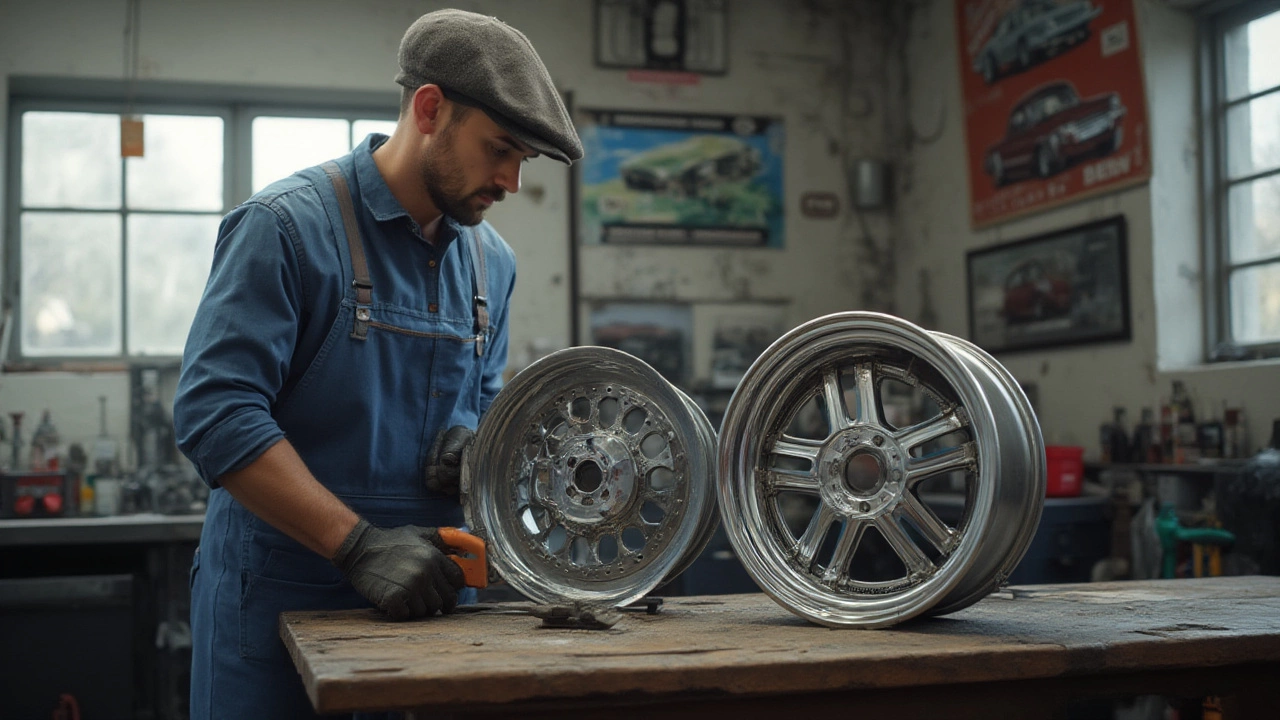Alloy vs Steel: Which Car Parts Material Is Right for You?
When it comes to car parts, especially wheels, the choice between alloy, a lightweight mixture of aluminum and other metals used in automotive components and steel, a strong, dense metal alloy primarily made of iron and carbon, commonly used in basic vehicle parts isn’t just about looks—it affects how your car handles, how much fuel it uses, and how much you’ll spend over time. Many drivers assume alloy is always better, but that’s not always true. Steel wheels are heavier, yes, but they’re also tougher, cheaper to replace, and far more forgiving on rough roads. Alloy wheels, on the other hand, are lighter, improve braking and acceleration, and give your car a modern edge—but they crack more easily and cost three times as much to fix.
The real difference shows up in how each material handles stress. alloy, a lightweight mixture of aluminum and other metals used in automotive components conducts heat better, which helps brake systems stay cooler during hard driving. That’s why performance cars and track-focused drivers lean toward alloy. But if you drive on pothole-ridden roads, salted winter streets, or gravel tracks, steel, a strong, dense metal alloy primarily made of iron and carbon, commonly used in basic vehicle parts will bend instead of shatter, saving you from a costly wheel replacement. Steel wheels also hold up better under heavy loads, making them a smart pick for vans, trucks, or cars that regularly carry passengers and gear.
It’s not just about wheels, either. Steel is still the go-to for suspension components, chassis brackets, and exhaust hangers because it doesn’t fatigue as quickly under constant vibration. Alloy shows up in high-end brake calipers, intake manifolds, and engine blocks where weight savings matter most. The trade-off is simple: steel wins on toughness and cost, alloy wins on performance and style. Most UK drivers don’t need alloy wheels unless they’re chasing better fuel economy or want a cleaner look. For everyday driving, steel wheels with proper maintenance last longer and cost less to fix when they do get damaged.
What you’ll find below are real-world guides from drivers and mechanics who’ve been there—whether it’s deciding whether to replace brake rotors with alloy or steel, how alloy wheels affect tire wear, or why some mechanics refuse to install alloy wheels on winter cars. These aren’t theory pieces. They’re fixes, warnings, and honest reviews from people who’ve seen what happens when you pick the wrong material for your driving life.

Alloy Rims vs. Steel Rims: Key Differences, Benefits, and Which to Choose
Explore the real differences between alloy and steel rims, including weight, cost, durability, looks, and performance so you can pick what's best for your car.
July 5 2025